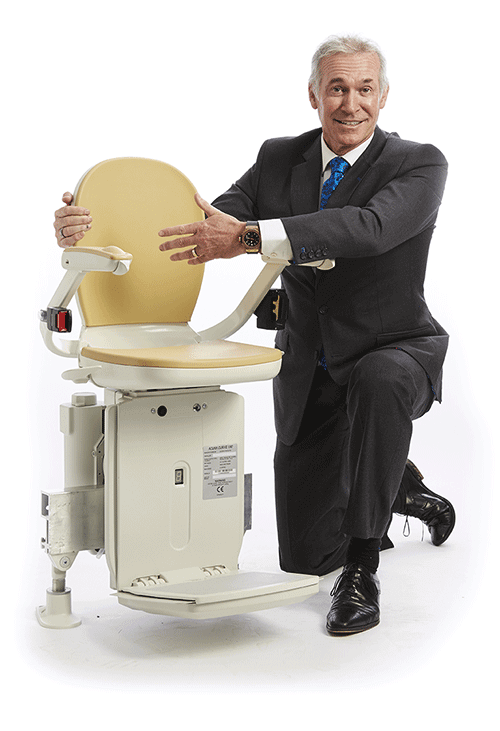Music is a mother’s comforting and familiar singing voice soothing her crying baby to sleep. It is the anthem that energises and rallies a stadium full of sports fans behind their team before the big game.
Music is the nail-biting tension during a thriller film that keeps us on the edge of our seats, our hearts racing in anticipation.
It is the force behind the goosebumps, the chills, and the tears that well up in our eyes after a beautiful aria, even when we are lost for words explaining how or why it touched us so.
Music is not just a sound that surges through our ears but a feeling that moves our minds and hearts. It allows us to feel, connect with others, and understand ourselves—But its power doesn't end there.
Would you believe me if I told you that music actually has the power to heal?
Read on to learn more about the surprising power of music therapy in senior health care, as well as 10 medical benefits that are sure to bring music to your ears.
What is Music Therapy?
Music therapy is a form of therapeutic intervention that uses music to address physical, emotional, cognitive, and social needs of individuals.
It involves the use of music and musical activities to achieve specific therapeutic goals and improve the overall well-being of individuals, which can include listening to music, playing musical instruments, and singing and dancing along to music.
Music therapists, who are trained professionals, utilise various musical elements such as rhythm, melody, harmony, and lyrics to create experiences that promote healing and enhance a person’s overall quality of life.
Some of the Magical Health Benefits You Can Gain from Music Therapy
1. Improves Cognitive Functions
Music therapy has emerged as a valuable and effective tool in enhancing cognitive function among seniors, but why is this?
The answer to this question is that engaging in musical activities, whether listening to melodies or actively playing instruments, has been shown to stimulate and sharpen various areas of the brain associated with memory, attention, and problem-solving.
It has been shown to be particularly beneficial for seniors with cognitive impairments like dementia or Alzheimer's disease, as the rhythmic and melodic elements of music can trigger memories, evoke emotions, and promote mental alertness.
2. Boosts Emotional Well-Being
As most of us have personally experienced at one time or another, music has a powerful influence on our mentality, evoking strong emotions and feelings.
For example, a beat that possesses your body to dance, or a song associated with joyful times in your life, can trigger positive mental experiences.
Through music therapy, seniors can experience elevated mood, reduced anxiety, and decreased symptoms of depression, which have an astronomical impact on our overall health.
3. Reduces Stress
Stress doesn’t just wreak havoc on our mental health but it also negatively impacts our physical health in countless ways, from weakening our immune systems, to impairing our quality of sleep, to raising our blood pressure—just to name a few.
However, listening to calming music or participating in musical activities can significantly reduce stress levels and induce relaxation, optimising the health and functioning of our bodies that would otherwise take a hit when stress is high.
4. Improves Quality of Sleep
Despite the common societal stigma that seniors don’t need as much sleep as younger people, this simply is not true. In fact, it is recommended that people 65 and older get between 7 and 8 hours of sleep a night.
However, researchers estimate that between 40 and 70 percent of older adults have chronic sleep issues that prevent them from getting the rest that they need, and up to half of these cases may be undiagnosed. Furthermore, another study revealed that about 50 percent of people over the age of 55 have difficulty falling sleeping and maintaining a good night’s rest.
A lack of high-quality sleep means that our bodies are not receiving the proper rest and recharging overnight needed for our bodies to perform optimally, which can lead to several health complications such as a weakened immune system, obesity, heart disease, and more.
Music therapy, especially soothing and calming music, can contribute to better sleep quality, improving sleep patterns, duration, and quality, which are crucial for a senior’s overall health.
5. Fosters Social Interaction
In some countries in the world, as many as one in three older people report feeling lonely, according to the World Health Organisation.
As one might imagine, these frequent feelings of loneliness and social isolation can have devastating effects on the mental and physical health of senior citizens such as significantly increased risk of depression, dementia, heart disease, and other complications that contribute to overall poor health, even having the potential to shorten your life.
Even more alarmingly, researchers have found that loneliness is just as lethal as smoking 15 cigarettes a day and is even worse for ageing than smoking.
This is why staying social is so important for seniors, not just for the sake of boosting their social status, but for the sake of their overall health and well-being.
Group music therapy sessions or simply connecting one-on-one with a trusted therapist encourages socialisation and interaction among seniors.
This can help combat feelings of loneliness and isolation, fostering a strong sense of community and connection and promoting an overall sense of well-being, both mentally and physically.
6. Manages Pain Perception
Unfortunately, with ageing comes more aches and pains as we lose muscle mass and bone density, the cartilage cushioning our joints becomes worn down, and our bodies lose flexibility and experience more stiffness.
Amazingly, music therapy has been found to be effective in managing pain perception, as well as distracting us from pain, which can be life-altering for those who suffer from frequent or chronic pain.
7. Enhances Motor Skills and Encourages Physical Activity
Rhythmic and coordinated movements involved in music activities can improve motor skills and coordination, especially in seniors with physical limitations. This can be beneficial for overall physical health and mobility.
Additionally, incorporating music into exercise routines can “jazz them up,” motivating seniors to engage in physical activities, which is an important aspect of our health no matter how old we are.
This is particularly important for maintaining cardiovascular health, muscle strength, and overall physical well-being.
8. Facilitates Communication and Self-Expression
For seniors who face communication challenges or struggle to get in touch with their emotions, music provides an alternative form of expression to free these trapped feelings that may be weighing on them.
Whether through singing, playing instruments, or non-verbal communication, music therapy can help individuals uncover and express some of their deepest emotions and thoughts, getting them out in the open so that they can healthily process them in a safe space with people they can trust.
9. Strengthens Heart and Cardiovascular Health
We’ve heard that music is good for the heart, but it turns out that this statement may be true both in a figurative and literal sense!
Engaging in musical activities has been linked to lower stress levels, reduced blood pressure, and improved cardiovascular function.
For example, listening to calming music has the potential to reduce heart rate and contribute to overall cardiovascular well-being.
The rhythmic elements in music can synchronise with the body's natural rhythms, enhancing circulation and promoting relaxation. This means that when we listen to music, we are simultaneously improving the function of our blood vessels, increasing our blood flow.
This good blood flow circulating throughout the body helps protect your heart, lowering the risk of heart attacks and other cardiovascular conditions.
10. Raises Overall Quality of Life
What is life without music?
Its harmonious notes not only bring joy and nostalgia but also create a therapeutic haven for emotional expression. Listening to favourite tunes or engaging in musical activities provides a sense of purpose and connection, diminishing feelings of loneliness. The rhythm and melody offer a gentle cadence to the daily routine, soothing the soul and alleviating stress.
Music becomes a timeless companion, enhancing overall well-being by nurturing the heart, mind, and spirit in the golden chapters of life. In these melodic moments, seniors find not just a soundtrack to their lives, but a key to unlocking a richer, more fulfilling existence.

